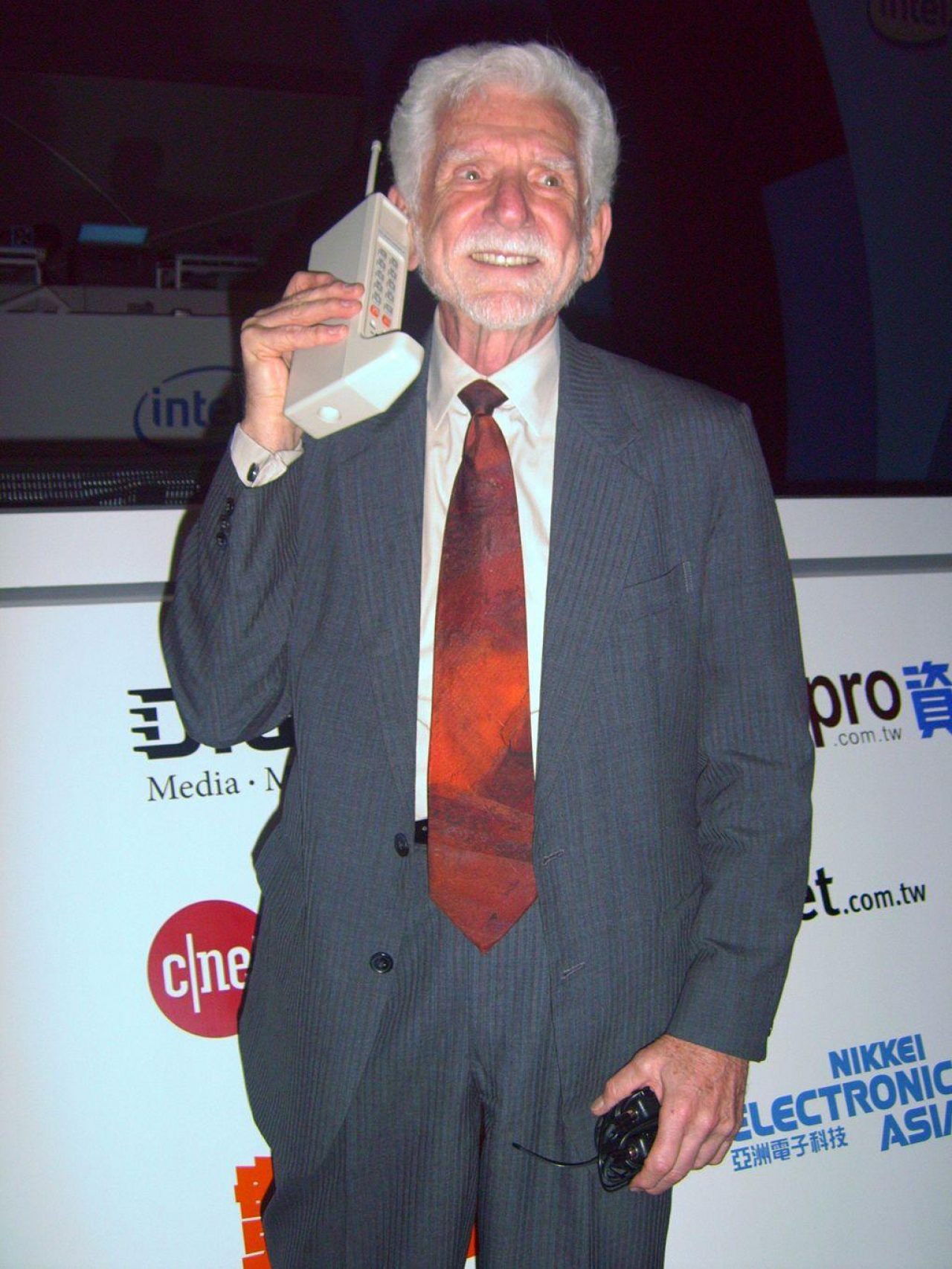The Father of the Cell Phone
On April 3, 1973, communications innovator and inventor Martin Cooper stood on Sixth Avenue and made the historic call.
Thirty years ago today, on a busy Manhattan street, the first ever cellular phone call was made.
On April 3, 1973, communications innovator and inventor Martin Cooper stood on Sixth Avenue and made the historic call. In front of a crowd of onlookers and reporters, Cooper telephoned Joel Engel, head of Bell Labs and Cooper's main rival in the field. When the connection was made, Cooper said, Joel, this is Marty. I'm calling you from a cell phone, a real, handheld, portable cell phone.
Martin Cooper was born December 26, 1928 in Chicago. He earned his degree from the Illinois Institute of Technology in 1950. Upon graduation he joined the Navy and served aboard submarines during the Korean War. He would return to IIT in 1957 to earn his Master's in electrical engineering.
Starting in 1954, Cooper first worked at Motorola as a senior development engineer specializing in mobile equipment. He made his way up the ladder, leading the Communication's Systems Division in the 1970s. It was there that Cooper first came up with the idea of the mobile phone separate concept from the car phone stating that the mobile phone should be a personal telephone something that would represent an individual so you could assign a number; not to a place, not to a desk, not to a home, but to a person.

The DynaTAC 8000x, the prototype Martin Cooper used for his historic call.
The phone Cooper used that New York day was a special prototype called the DynaTAC. It became available to consumers almost 10 years later, in 1983, for the steep sum of $4,000 (the equivalent of almost $10,000 after inflation). Commercial cell service also became available to the public at the same time, though it would be at least another 1o - 15 years before ordinary consumers like you and me could afford a personal cell phone.
Under Cooper's influence, telecommunications in the United States would start a shift that is still happening today. Cell phones have indeed come to represent individual people wherever we are, as opposed to being tied directly to a particular place or location. They are smart enough to work like a computer, and small enough to fit in your pocket.
I wonder if, thirty years ago, Mr. Cooper knew how far his invention would take us. Can you imagine our world today without cell phones?

 Member Connect
Member Connect